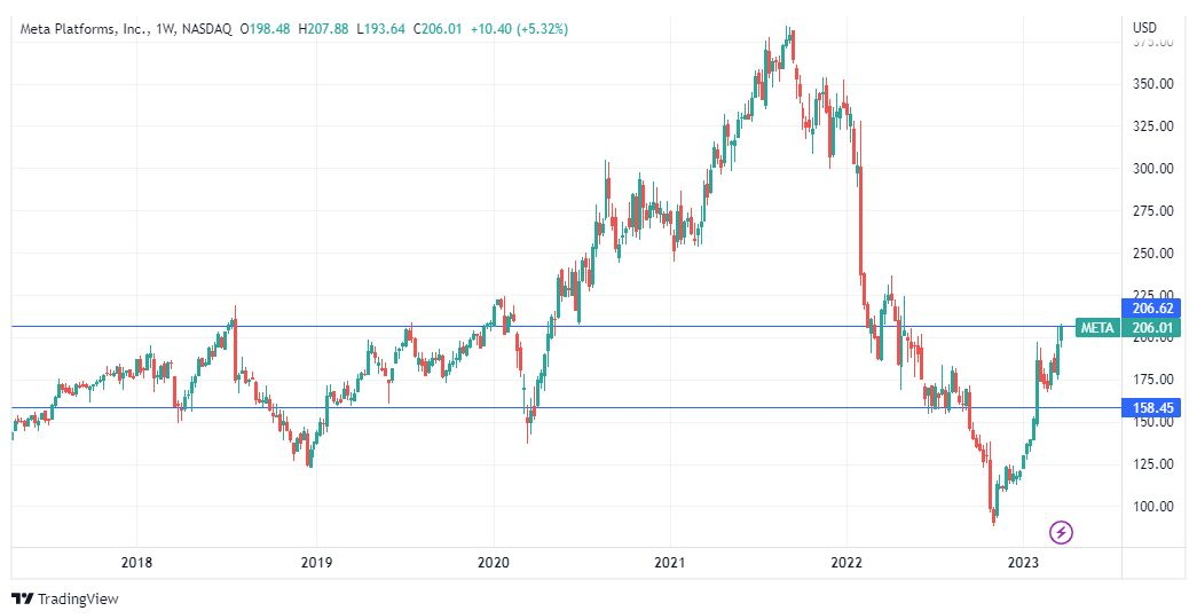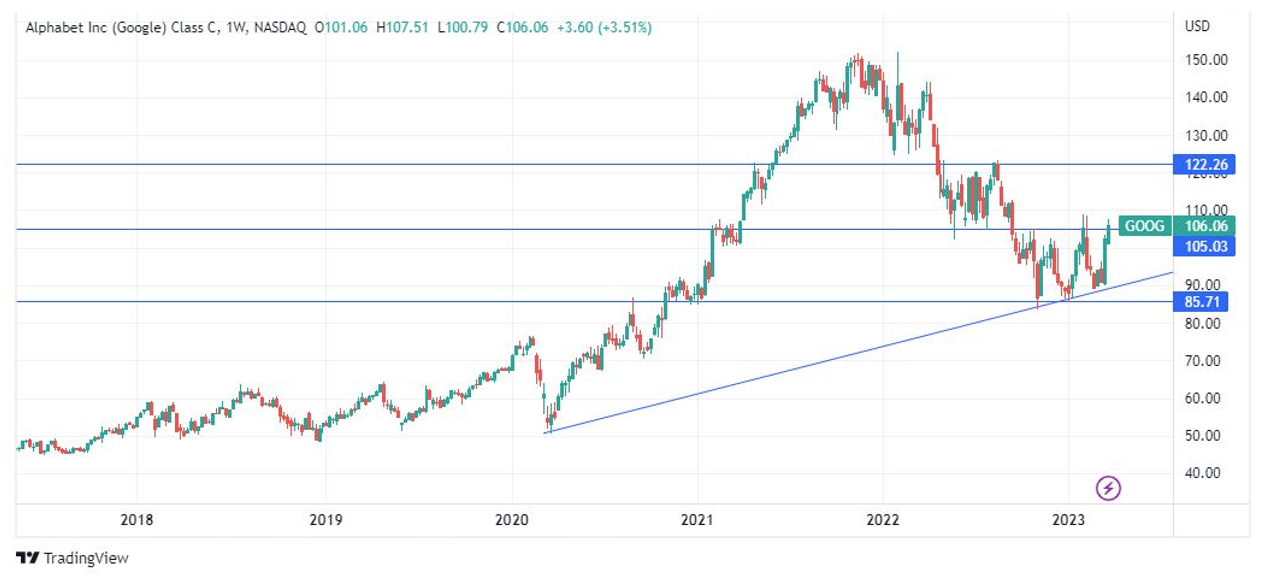The big boys of technology have been subject to recurrent legal scrutiny by regulators and watchdogs over matters concerning user privacy, advertising activity, censorship and even defamation. Tech tycoons including Meta Platforms, Google, Apple and Twitter deal with lawsuits on a regular basis.

Lawsuit after Lawsuit – Does it affect the Big Tech Stocks?
The big boys of technology have been subject to recurrent legal scrutiny by regulators and watchdogs over matters concerning user privacy, advertising activity, censorship and even defamation. Tech tycoons including Meta Platforms, Google, Apple and Twitter deal with lawsuits on a regular basis.
Such lawsuits are filed by consumers, corporations and even national regulators which seek to capitalize on what they presume as market monopolization, privacy breaches or any other unlawful act. While such cases do have the potential to shake up the stability of the scrutinized corporations, business continues to go on and it is more apparent than not that such regulation and litigation may not have a substantial impact on the share price of these companies. [1]
For example, Mark Zuckerberg’s Meta Platforms, home of Facebook, Instagram and WhatsApp, has had its fair share of lawsuits in the past couple years. Most recently in March, a class-action lawsuit alleged Facebook of breaking the Illinois Biometric Information Privacy Act by collecting & storing users’ biometric data without consent, via technologies such as facial recognition.

Performance of Meta Platforms, Inc., stock over 6 years. Source: Tradingview.com
This has not even left a dent on the Meta stock (NASDAQ: META), but the contrary. The battered stock enjoyed exuberant growth since the end of a disastrous 2022 for the Zuckerberg empire, characterized by spiraling downturns, devaluation and stricter litigation. Yet, there is no clear direct cause-and-effect with regards to lawsuits and stock price movements.
Earlier, Irish regulators fined Meta’s Instagram a whopping €405 million, alleging that the popular social media platform failed to protect the privacy of children after under-age users switched their account type to ‘business’, which resulted in their data being publicized. Once more, the effect on the stock price at the time, was near non-existent. *
One lawsuit after the other, Meta Platforms has dealt with lawsuits on a regular basis since the early 2000s, and the theme is apparent with other technology giants. Looking into another tech tycoon by the name Alphabet, the parent company of a slew of subsidiaries including Google & YouTube, has also been under regulator radar since inception.
In early 2023, the United States Justice Department filed its second antitrust lawsuit against Alphabet’s Google in a span of two years. This lawsuit targets Google’s online advertising business, but for context, let’s go back to October 2020 when the Justice Department accused Google of utilizing its monopoly power to crush its internet search engine competitors.
It was regarded as the largest antitrust case in a generation, and in a matter of two months, Google faced two additional behemothic lawsuits in less than two months, mainly regarding its alleged monopolistic activity, discriminatory search results and unfairness towards advertisers.

Performance of Alphabet Inc (Google) Class C over 6 years. Source: Tradingview.com
The chart speaks for itself. In October 2020, the stock price of Google (NASDAQ: GOOG) began propelling in a bullish frenzy since mid-2020 amid the heightening of the COVID-19 pandemic and its repercussions across the markets. In 2022, just like the majority of stocks out there, GOOG witnessed hardship amid growing geopolitical tensions, wounding inflationary pressures and increased reluctancy of individuals and businesses to spend & invest. *
Fast-forward to the highly significant lawsuit filed by the US Justice Department in January 2023, there was little to no effect on the share price, as seen with Meta Platform’s META when put under technical radar, but these shares are rather affected by other fundamental factors which drive the companies themselves, either forward or backwards, alongside the conditions within the wider macro sphere. *
This suggests one main thing: Investors and traders are not highly influenced by news of regulators & watchdogs enforcing stricter regulation and litigation on tech giants. The reason for that is perhaps, that large corporations, especially those entrenched within the realm of technology, are expected to be under the radar of watchdogs, as they engage in activities which deal with the data of hundreds of millions of users.
Not much value is being attached to these lawsuits, and while they often involve very large sums of fines to be paid, or the alleged statements are quite the game-changers, the big boys of technology are historically unharmed in a substantial manner by regulation and litigation with regards to their valuation, market capitalization and stock price.
Written by Adam Austera, analyst of Ozios
* Past performance is no guarantee of future results
[1] Forward-looking statements are based on assumptions and current expectations, which may be inaccurate, or based on the current economic environment which is subject to change. Such statements are not guaranteeing of future performance. They involve risks and other uncertainties which are difficult to predict. Results could differ materially from those expressed or implied in any forward-looking statements.
Disclaimer:
The material herein is considered as marketing communication under the relevant laws and regulations, and as such is not a subject to any prohibition on dealing ahead of the dissemination of investment research. It has not been prepared in accordance with legal requirements designed to promote the independence of investment research and should not be construed as containing investment advice, or an investment recommendation, or an offer of or solicitation for any transactions in financial instruments. The published content is intended for educational/informational purposes only. It does not take into account readers’ financial situation, personal experience or investment objectives. APME FX Trading Europe Ltd makes no representation that the information provided is accurate, current or complete; and therefore, assumes no liability for any losses arising from investments based on the supplied content. The past performance is not a guarantee of future results.
5 Football Clubs That Attract Investors Like Stock Market Stars
Tesla Seeks a New Growth Driver as First Robotaxi in Texas Aims to Convince Investors
The oil market has been shaken by Iran, Ukraine and fires in Canada
Risk warning: CFDs are complex instruments and come with a high risk of losing money rapidly due to leverage. 78.95% of retail investor' accounts lose money when trading CFDs with this provider. You should consider whether you understand how CFDs work and whether you can afford to take the high risk of losing your money. Read our Risk Disclosures.


